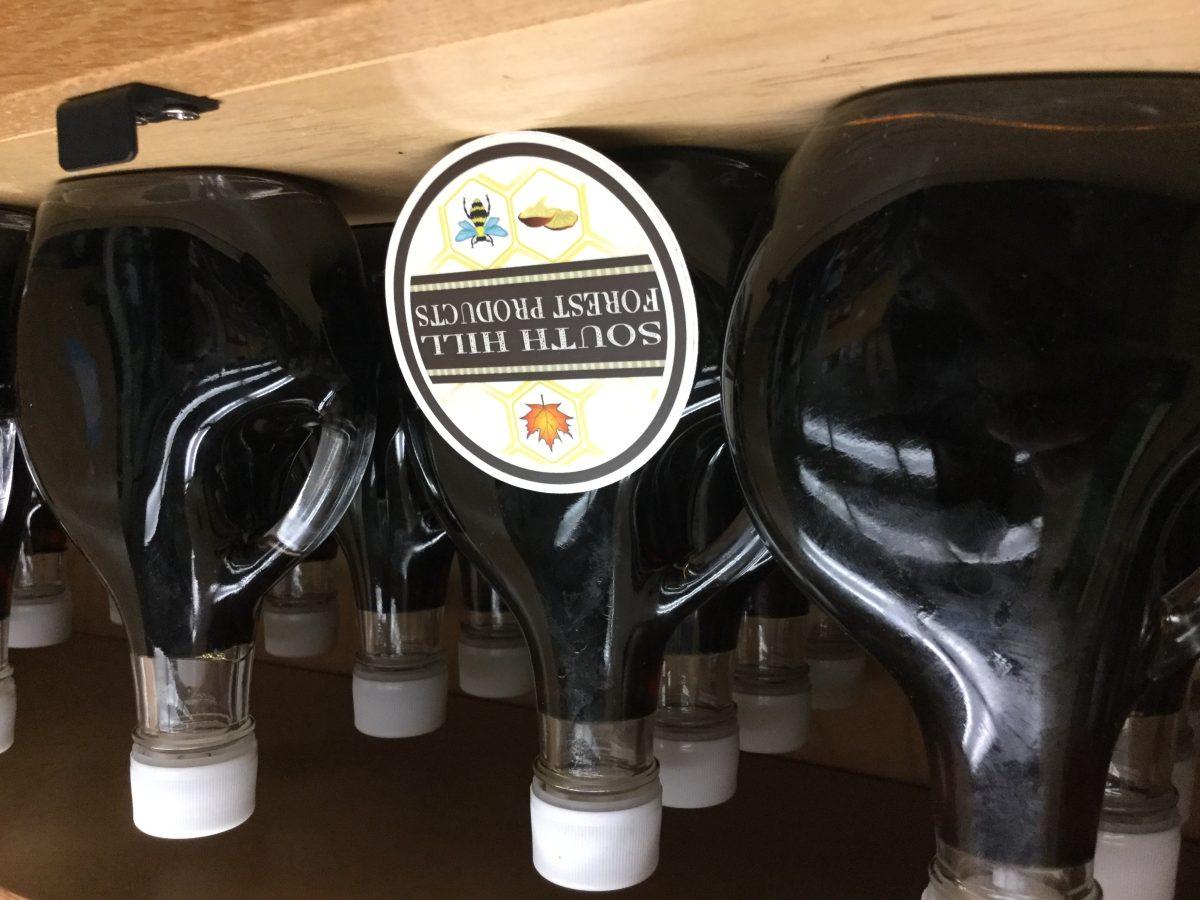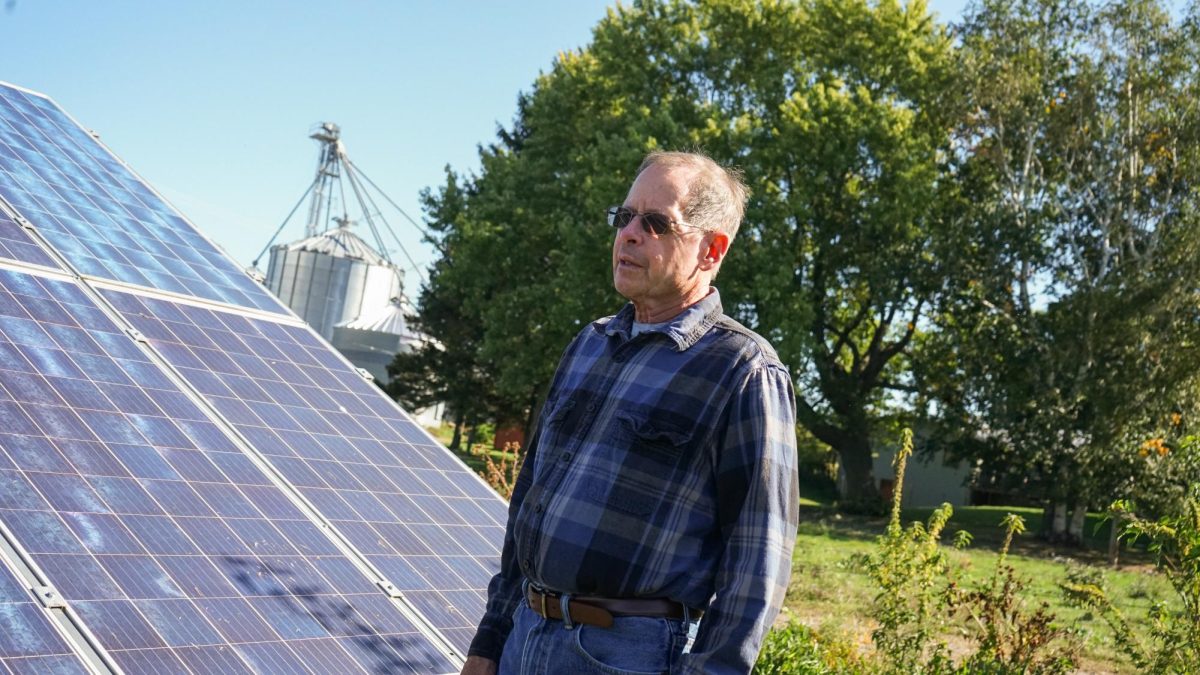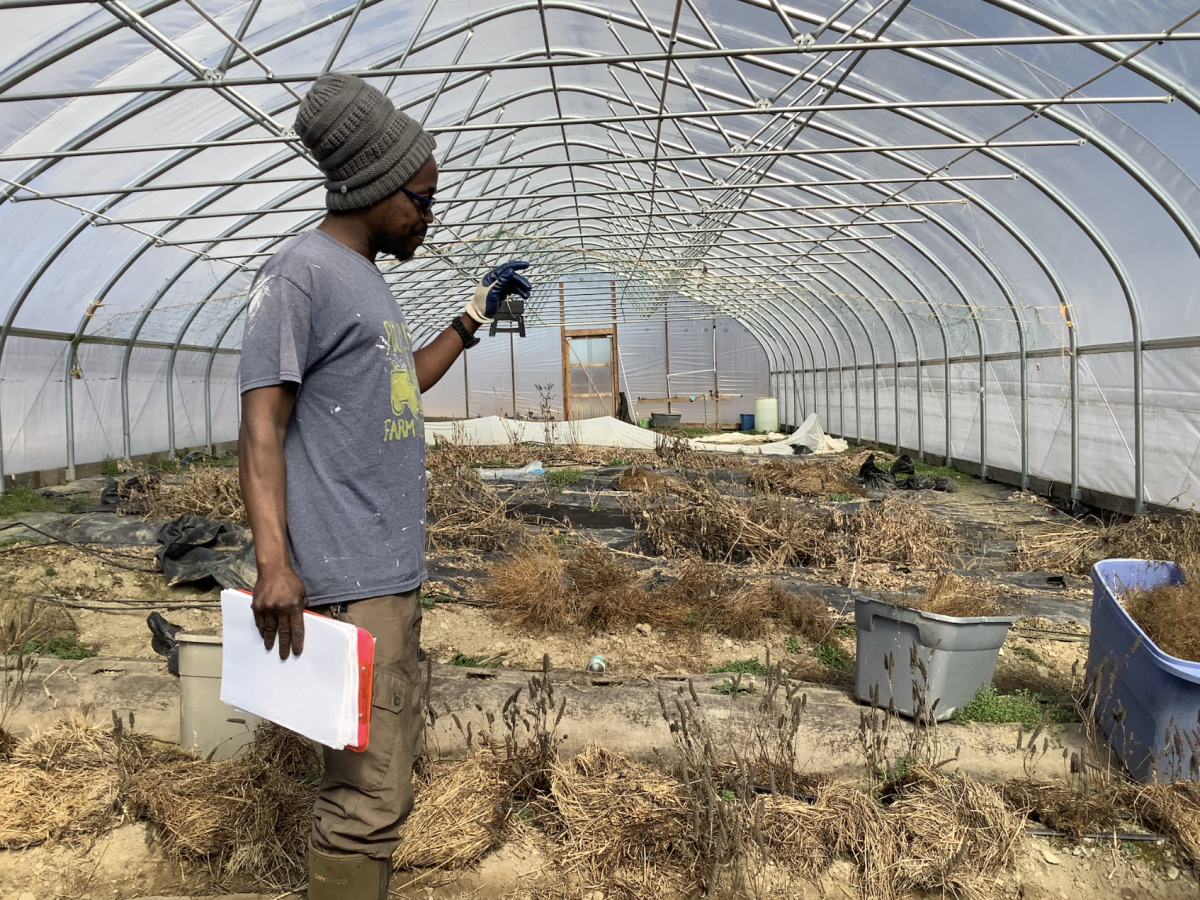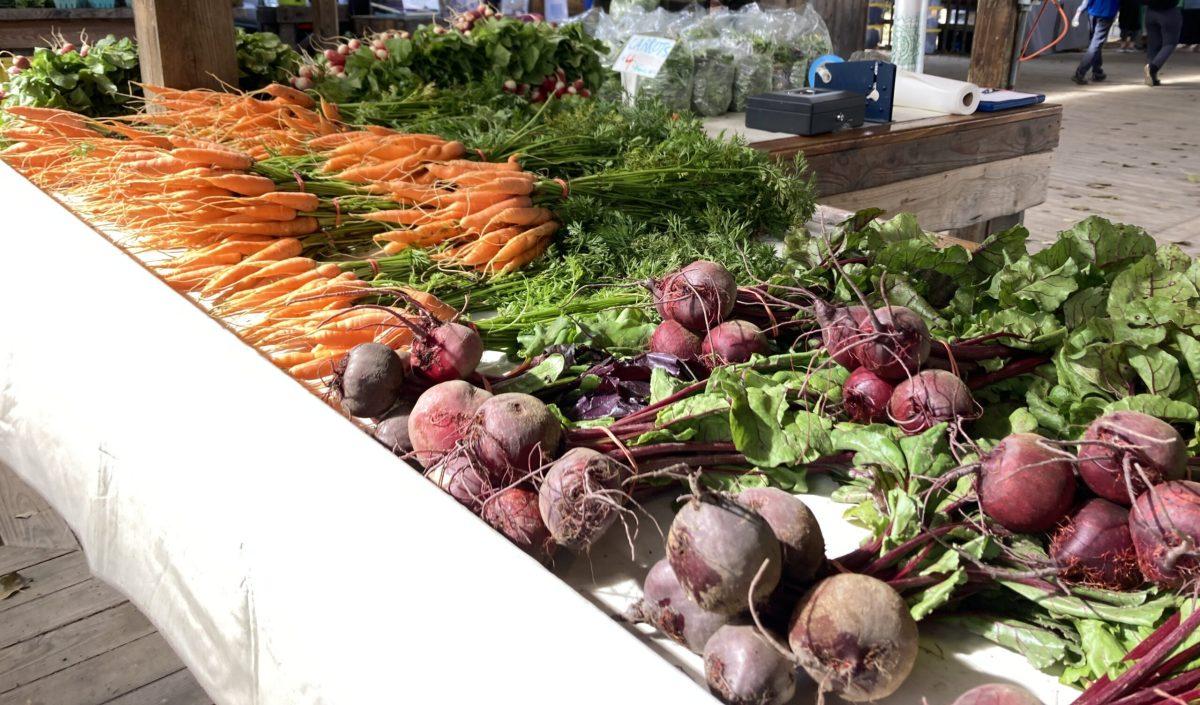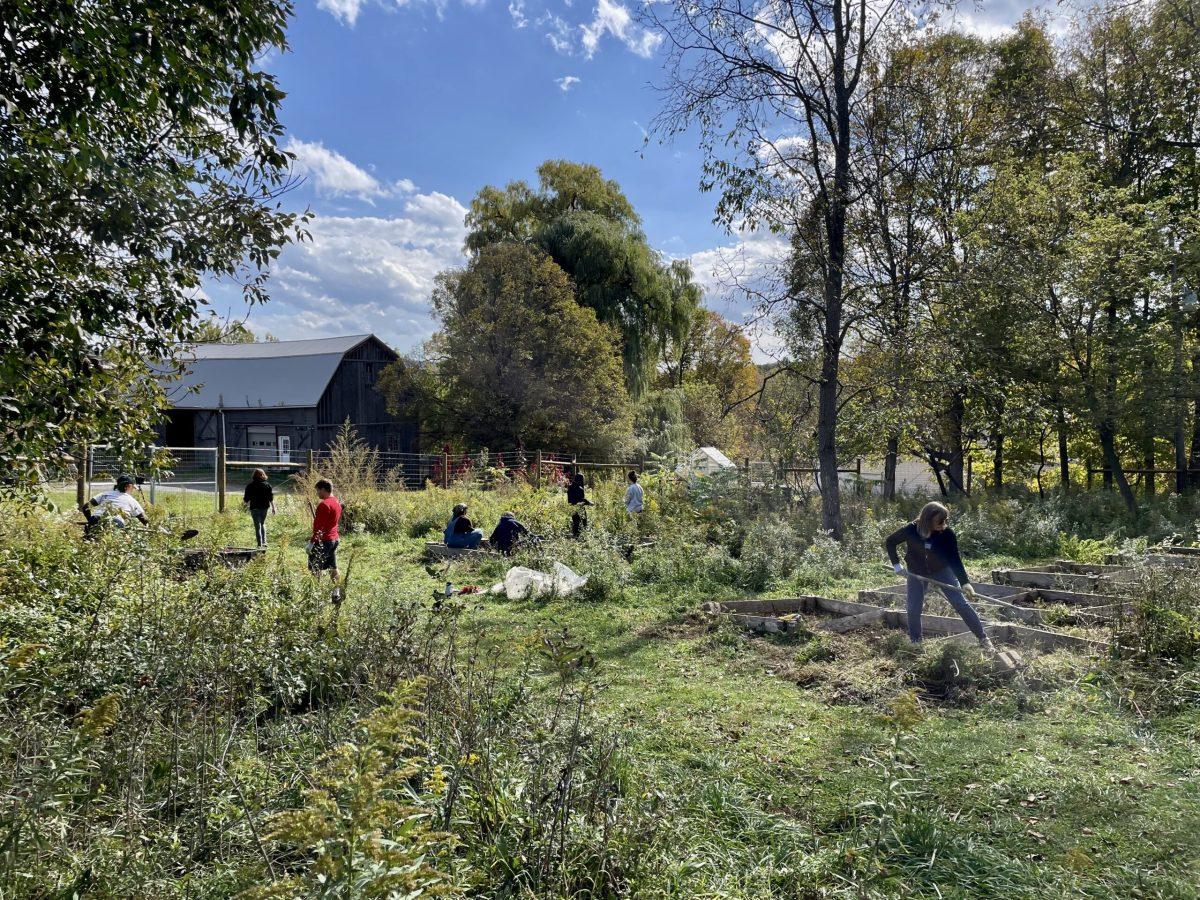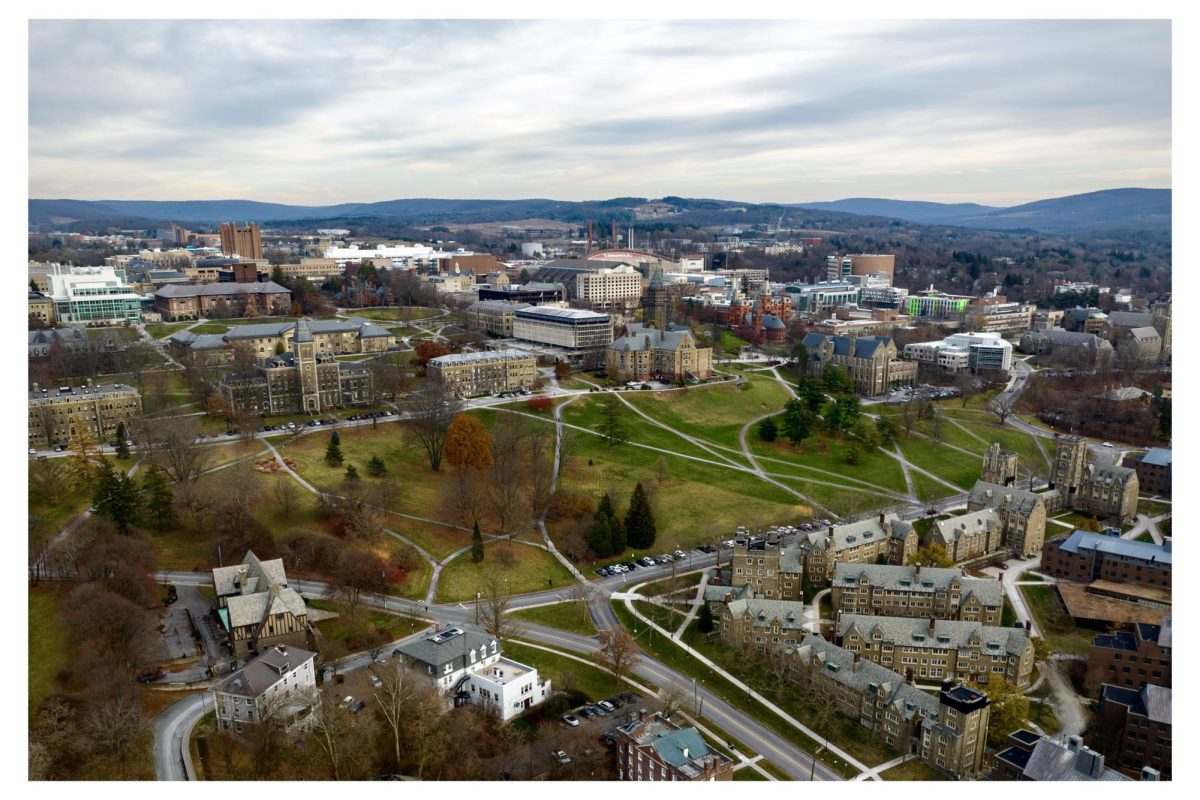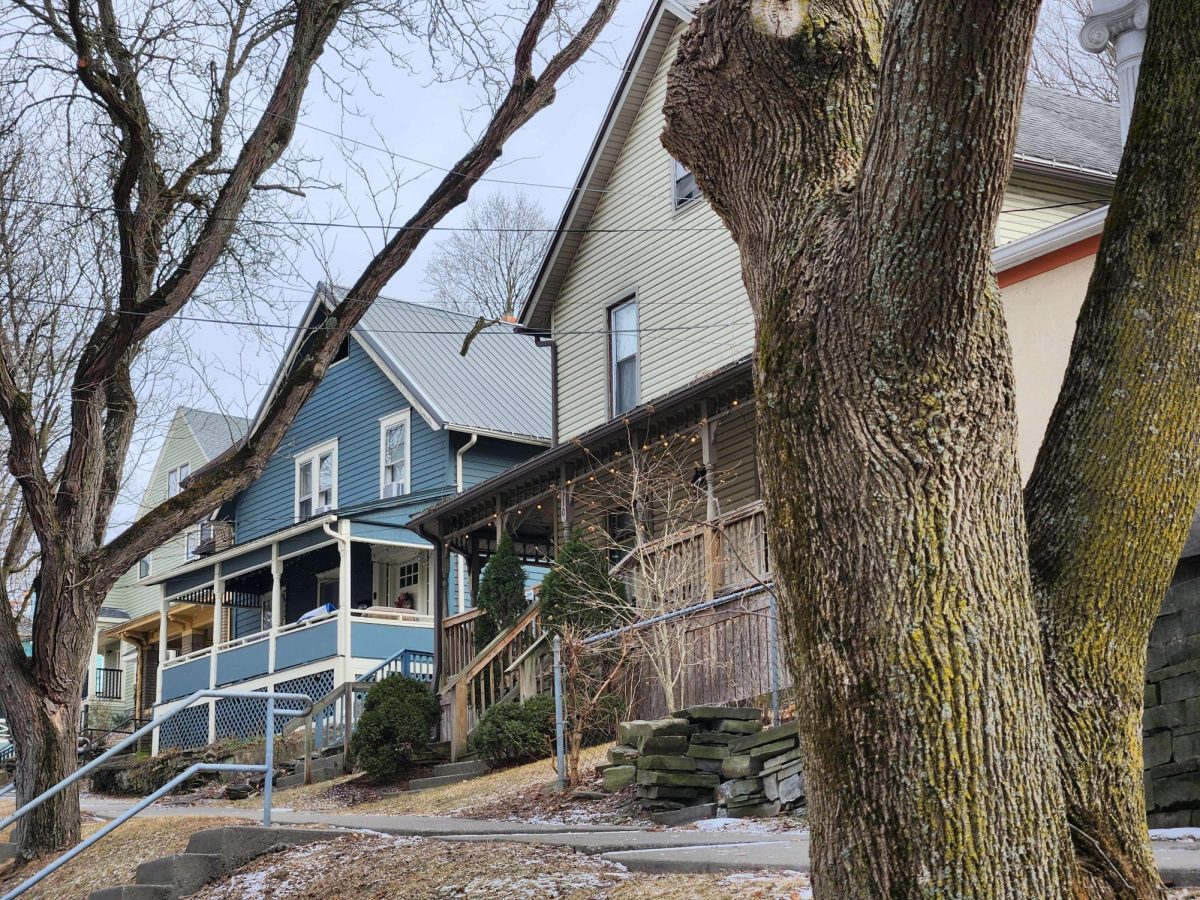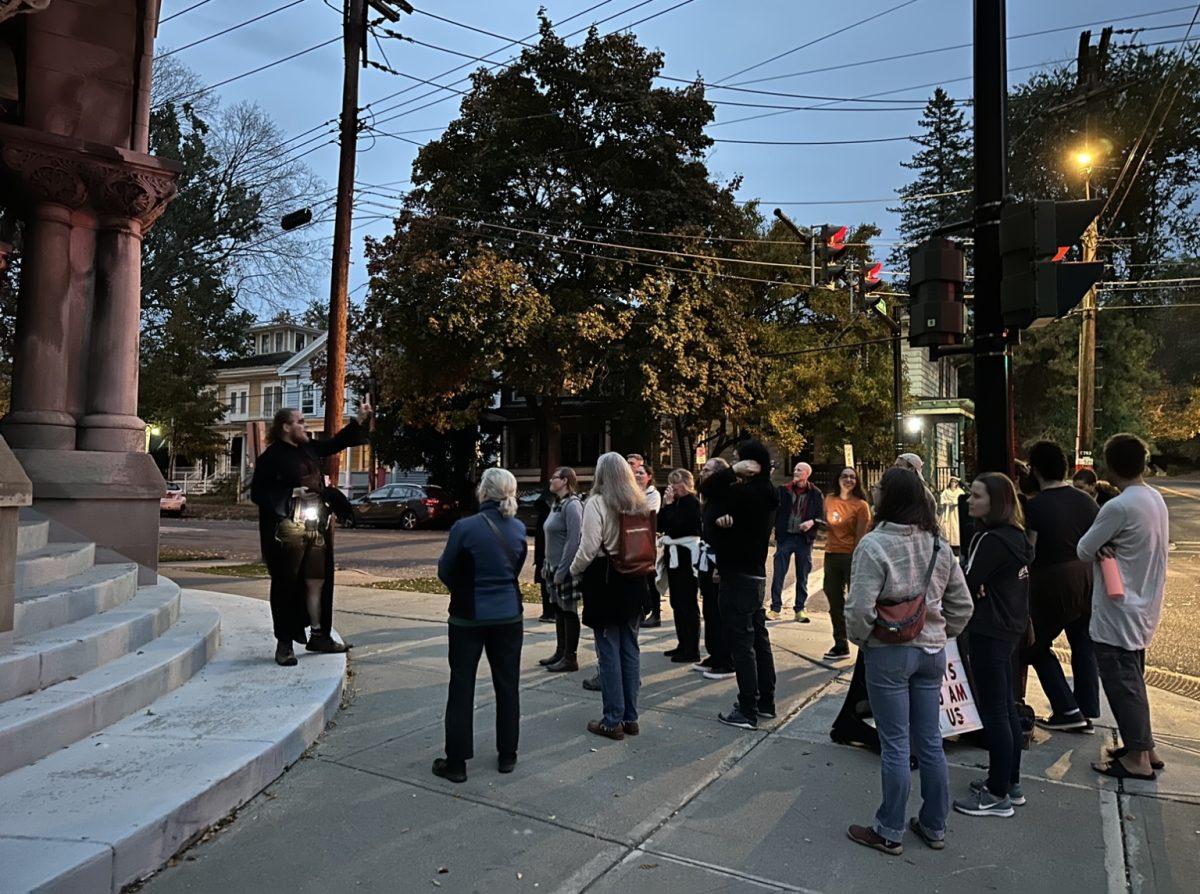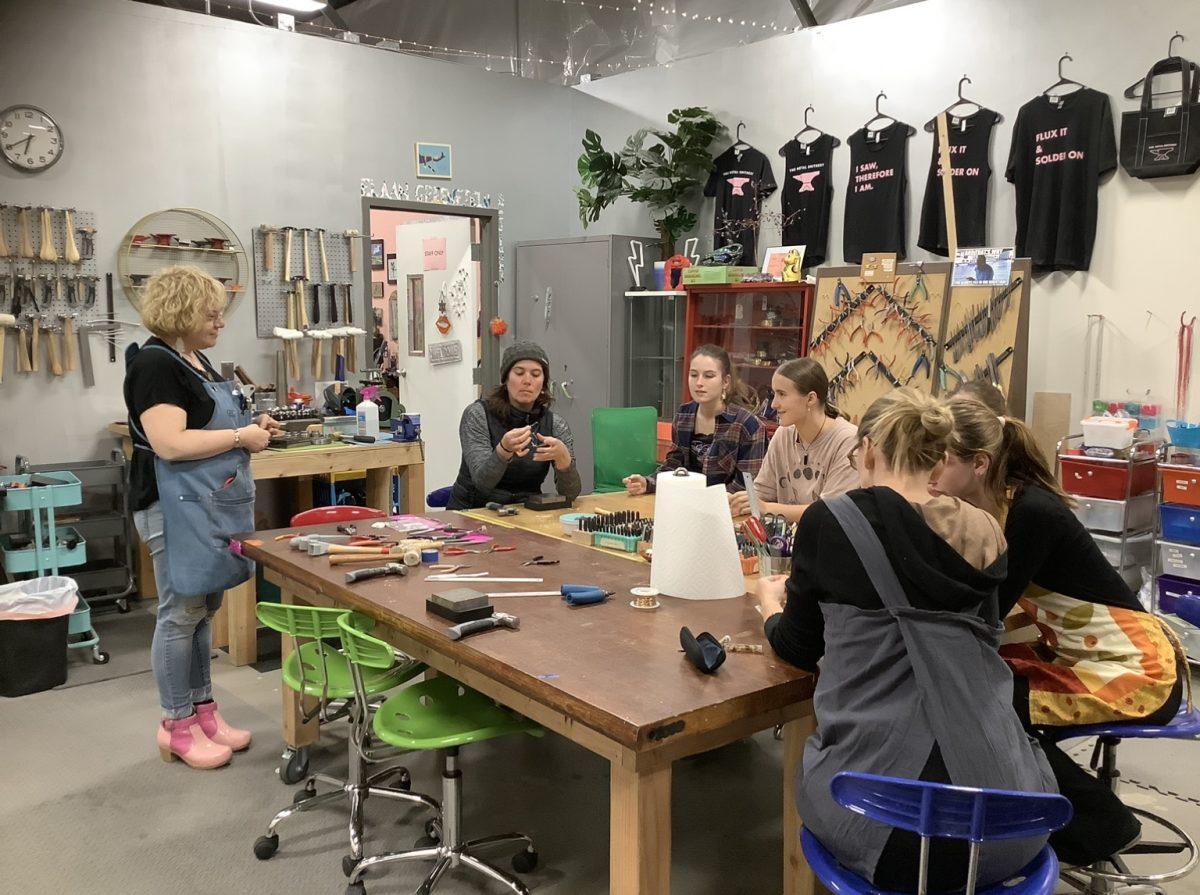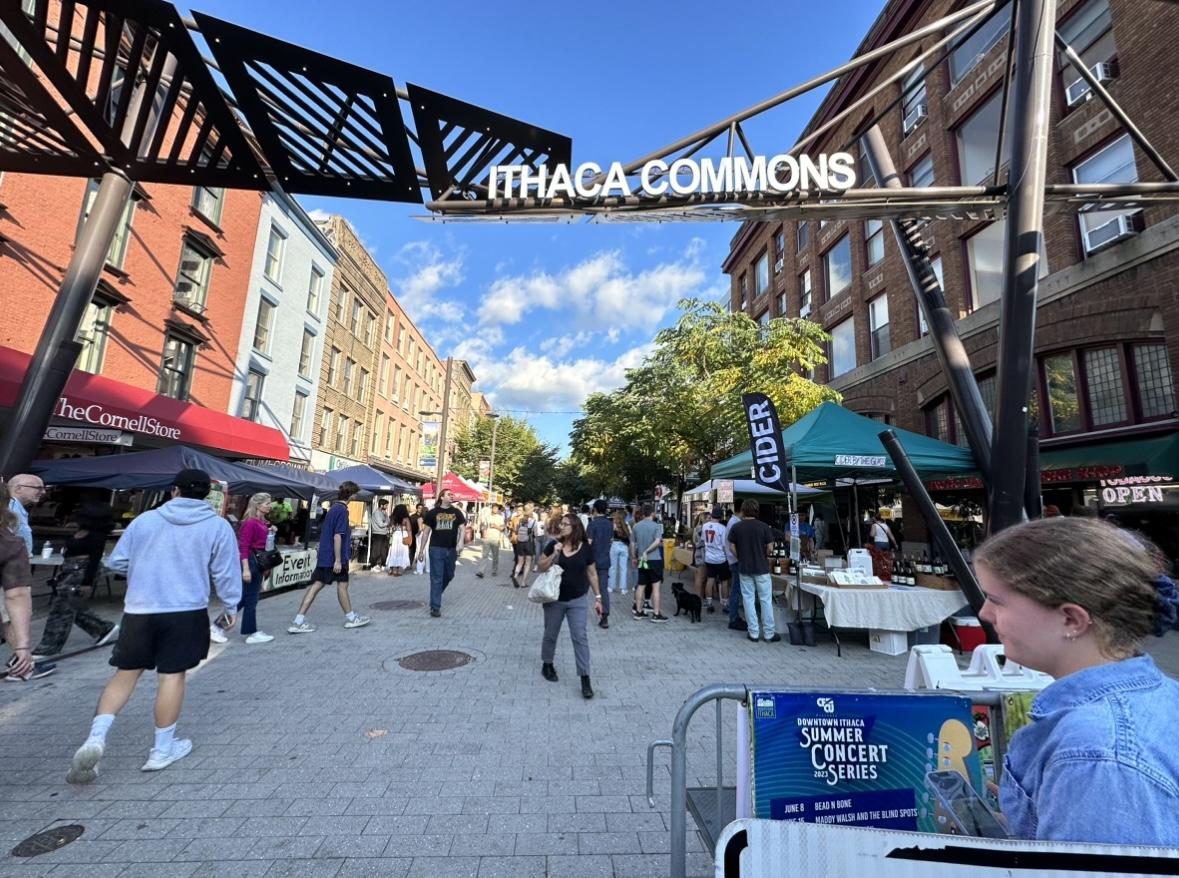Students gather together around two brick fire pits on the edge of the Ithaca College Natural Lands. Surrounded by sugar maple leaf trees they fan fires in preparation of a maple syrup boil; they are about to begin producing their most popular product.
Spikes in spring temperatures over the past couple of years have been thorns in the sides of maple syrup producers. Ithaca sits on the very edge of this maple production boundary and students, as well as local producers, fret over their products as this wild weather threatens to turn it sour.
“We make all kinds of non-timber, forest products,” says Joshua Enderle, junior, “we also make honey, birch syrup, carved spoons, salves and all kinds of other things.”
Joshua, is part of the non-timber forest products class, an entrepreneurial experience designed over several years by Ithaca College students.
While the maple syrup is by far their most popular product, the students have not shied away from venturing into different markets to expand their product line. Jason Hamilton, faculty founder of the class and professor in the Humanities and Sciences Department, shared the origins of the class: “I had just come back from a conference where we had talked about non-timber forest products and while I was thinking about it a student came up to me and said he and his friends wanted to start tapping maple syrup.”
After contacting local producers and a couple of years learning the craft, enough students had come together that Hamilton and others decided to set up the experience as a class when the environmental department was formed. Farming the Forest had become both a business opportunity for Park School of Business majors to practice their skills at marketing and an opportunity for environmental majors to learn forestry.
“We never compete with the local market,” says Hamilton, “here in our citadel on the hill we don’t challenge the markets of the kind people who taught us how to do this.”
In a small open house between March 6-9 the students will open their doors to the public and sell their hand-made, artisanal craft.
The climate, however, has been a challenge for both the forest products class and local maple syrup producers.
“It needs to be really cold at night and just a little above freezing in the morning,” says Sydney O’Shaughnessy, senior, another student who is part of the class “recently, that’s been a bit of a problem.”
Mark Wysocki, a New York State climatologist, points out it is too early to jump to some conclusions and that more data needs to be gathered before climate change can be called out as the cause of these temperature spikes.
“Of the top five warmest temperatures — two of those occurred fairly recently … if we start seeing more of these frequently warm Februaries, then we’re going to start saying climate is changing and trying to figure out why.”
As of right now the connection to global climate change is being withheld and it is being considered an isolated incident, which has happened in Ithaca before. This February has still been the warmest in the history of Ithaca, since records started in 1894. The second warmest February was in 2012.
While the verdict of climate change is being set on hold, local producers are concerned about their yearly crops. “The changes to the maple syrup industry we are talking about are 50 to 100 years down the road,” says Hamilton, “Most producers are thinking about when they are going to hire their seasonal help and light the gas fires for their own syrup boils.
Concern does hang in the air for this sweet business as weather effects have upset their usual cultivation. In terms of agriculture the spring-time is on of the most turbulent, providing the biggest temperature swings and the highest risk of planting failure.
“Spring is always a rapidly changing season. You’ll see both winter- and summer-like conditions, that’s typical. What’s not typical is getting really winter-like conditions in January, and then July conditions the following day.” Says Wysocki.
Check out our slideshow of the maple tapping process with audio from Joshua Enderle:

